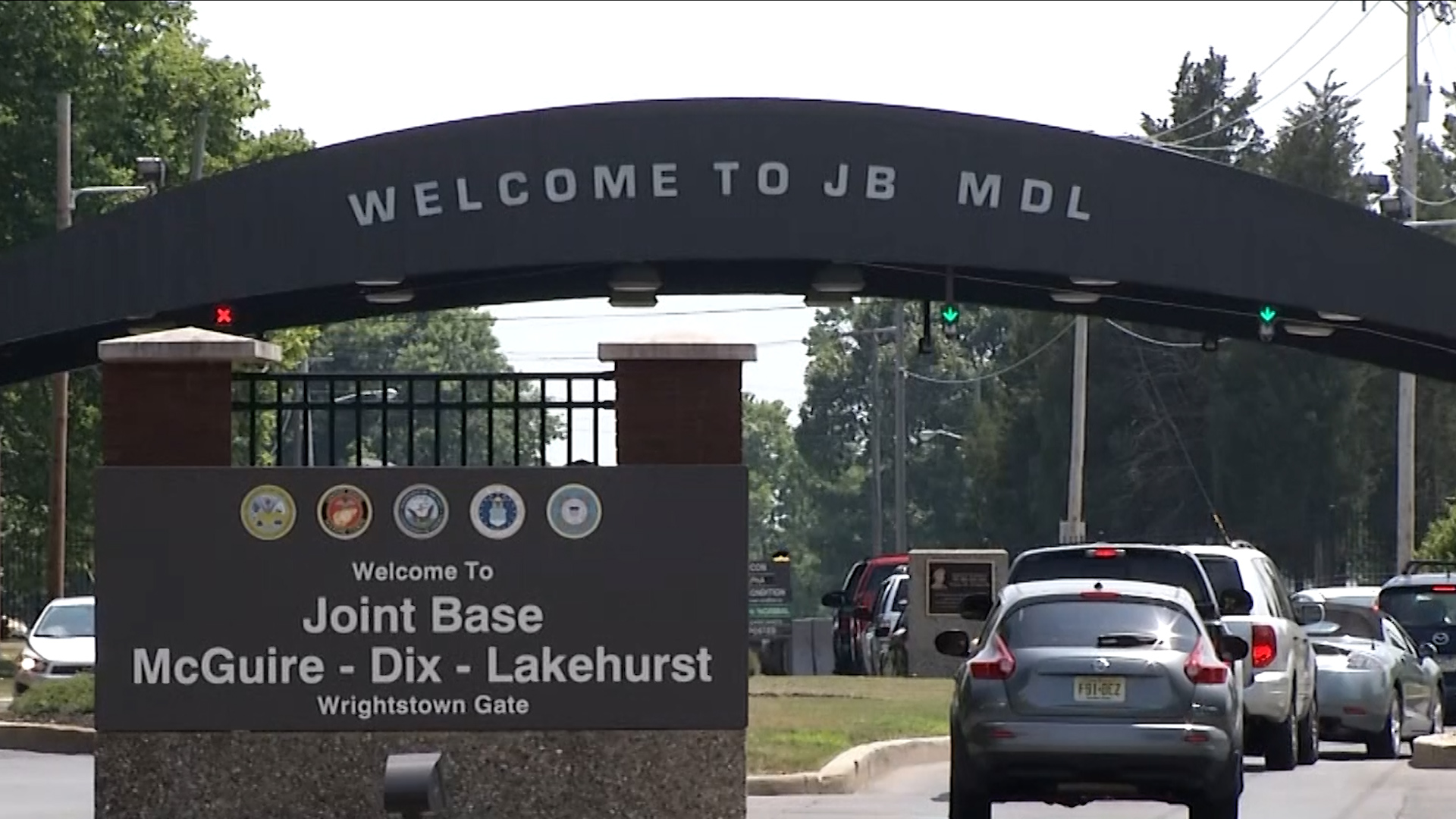In a significant development regarding immigration policies, the Trump administration has announced plans to use Joint Base McGuire-Dix-Lakehurst in New Jersey as a temporary detention site for immigrants. This decision has garnered attention for its potential impacts on the state, its communities, and its facilities.
A Strategic Location for Immigrant Detention

Joint Base McGuire-Dix-Lakehurst, located in Burlington County, has been selected by federal authorities for the temporary detention of immigrants who are currently awaiting deportation or other immigration proceedings. The base, which serves both military and civilian functions, provides an expansive and secure area suitable for such operations. With its combination of military, aviation, and logistical capabilities, it is well-suited to accommodate the influx of individuals involved in the U.S. immigration system.
The administration has labeled the use of this facility as “temporary,” but the details surrounding the duration and specific conditions of this arrangement remain unclear. This announcement follows a broader pattern of using military and federal installations across the U.S. to manage the increased number of people seeking asylum or facing removal from the country.
Political and Community Reactions
The decision to place an immigration detention facility at Joint Base McGuire-Dix-Lakehurst has sparked a wide range of reactions from political leaders, advocacy groups, and local communities.
Supporters of the Plan
Supporters of the move argue that utilizing military facilities for the detention of immigrants will help streamline the U.S. government’s immigration enforcement efforts. Proponents highlight the increased security that military bases provide and argue that the base’s existing infrastructure can handle large-scale operations efficiently. Furthermore, they contend that the facility’s temporary nature will ensure that it does not permanently alter the local landscape or impact the day-to-day functioning of the base.
Opponents Raise Concerns
On the other hand, opponents of the plan have expressed concern about the ethical implications of detaining immigrants in military settings. Many critics are especially wary of the psychological and physical well-being of detainees, especially those who may include children, families, or individuals seeking asylum.
There is also significant pushback from local communities who worry about the impact on public resources, including schools, hospitals, and other services that may need to accommodate an influx of people. Additionally, many human rights organizations have voiced their disapproval, arguing that such detentions undermine the dignity and rights of immigrants.
Local politicians, particularly in New Jersey, have joined the chorus of opposition. They have called for a thorough review of the plan and questioned the long-term consequences of turning a military base into a facility for immigration enforcement.
The Bigger Picture: Immigration and National Security
This decision is not isolated but rather part of the Trump administration’s broader immigration strategy to address what it views as issues with illegal immigration and asylum seekers. Joint Base McGuire-Dix-Lakehurst is the latest facility to be used in efforts to detain immigrants as part of a system that critics argue is increasingly militarized and disconnected from the human rights obligations of the U.S. government.
Advocates for stricter immigration controls often cite national security and the need for better immigration enforcement. At the same time, they stress the importance of securing U.S. borders to ensure that individuals entering the country do so legally and through appropriate channels.
However, the conversation surrounding immigration is complex. As the debates over immigration reform continue in the public sphere, proposals for detention and deportation remain a contentious issue. The balance between national security and the treatment of immigrants is at the heart of many policy disagreements, with critics arguing that the U.S. must find a way to address both security concerns and the human rights of migrants.
The Future of Immigration Policy in New Jersey
For residents of New Jersey, the decision to house detained immigrants at a military base within the state could set a precedent for future detention operations in the region. It also raises critical questions about the state’s role in national immigration policy.
New Jersey’s legal landscape, including the state’s progressive stance on many social issues, has already come into play in the broader debate on immigration. The state has been home to one of the nation’s largest and most active immigrant populations, and the implications of using military facilities in the state to detain immigrants could have far-reaching effects.
As immigration laws continue to evolve, New Jersey will likely continue to be a battleground for policies surrounding immigrant rights, detention, and deportation. For now, the use of Joint Base McGuire-Dix-Lakehurst serves as a key moment in the ongoing discourse about the balance between security and humanity in U.S. immigration policy.
Conclusion: A Controversial but Key Decision
The Trump administration’s decision to detain immigrants at Joint Base McGuire-Dix-Lakehurst adds another chapter to the complex and highly debated issue of immigration in the U.S. Whether this move is seen as a necessary measure to manage immigration or as a step toward further militarization of immigration enforcement, it will likely continue to spark debate.
As New Jersey residents and policymakers look ahead, the ultimate impact of this decision on the community, the state, and the broader conversation on immigration remains uncertain. The use of military bases as temporary detention centers could become a recurring theme if the Trump administration or future governments pursue similar policies. Therefore, understanding the nuances of immigration law and its evolving landscape in New Jersey is critical.
For more updates on immigration policies and their effects in New Jersey, visit the Politics section on Explore New Jersey.












